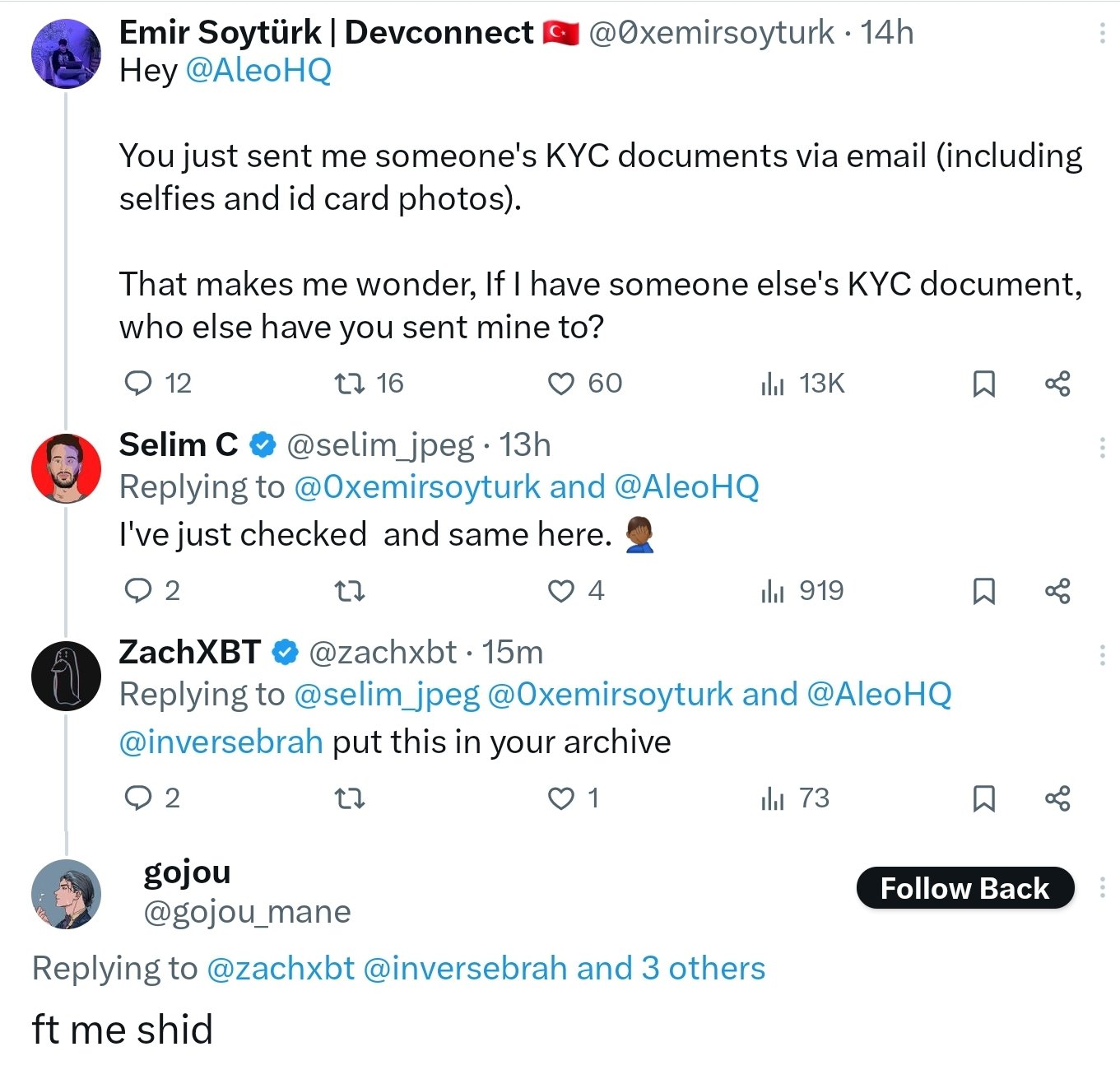Decentralized blockchain platform Aleo, renowned for its emphasis on zero-knowledge (zk) cryptography, faced a privacy mishap on February 25. Reports surfaced on X (formerly Twitter) indicating that personal identification documents of some users were inadvertently shared with others. This breach highlights potential vulnerabilities in the handling of sensitive information, despite the platform’s advanced privacy-focused technologies.
Aleo, which is gearing up for its mainnet launch, utilizes zk cryptography to offer enhanced privacy and security for blockchain transactions. This technology allows for the verification of transactions without disclosing the specifics, ensuring a high degree of confidentiality. However, a critical slip occurred when a third-party protocol, employed for Know Your Customer (KYC) processes, mistakenly sent out KYC documents, including selfies and ID card photos, to incorrect recipients.
Users @0xemirsoyturk and @Selim_jpeg brought the issue to light by reporting that they received other people’s KYC documents via email. This incident has sparked concerns about the security of personal data within Aleo’s ecosystem, especially given the platform’s reliance on a third-party service for collecting unencrypted KYC data as part of its compliance with anti-money laundering (AML) and Office of Foreign Assets Control (OFAC) screening requirements.
The irony of a platform dedicated to programmable privacy facing such a data leak was not lost on Mike Sarvodaya, founder of Galactica, a layer-1 blockchain infrastructure. Sarvodaya criticized the oversight, highlighting the essential need for implementing secure storage and proof systems for sensitive information based on zero-knowledge proof or fully homomorphic encryption (FHE) techniques. These systems are designed to prevent any single entity from accessing or revealing stored data, thus ensuring user privacy.
As Aleo approaches its mainnet launch, this incident serves as a stark reminder of the challenges facing blockchain platforms in safeguarding user data. While the platform’s commitment to privacy through zk cryptography remains undisputed, the breach underscores the importance of operational security and the risks associated with relying on third-party services for critical processes like KYC verification.

This development also raises questions about the broader implications for privacy in the blockchain sector and the measures that platforms must take to protect user data effectively. As the industry continues to evolve, the Aleo incident highlights the ongoing need for robust security protocols and privacy-preserving technologies to ensure the confidentiality and integrity of user information in the decentralized web.

